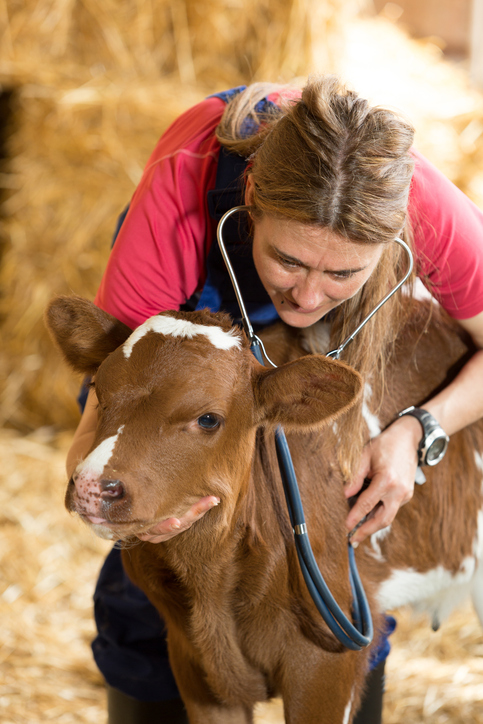
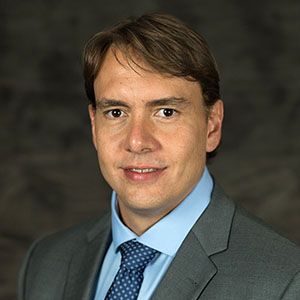
Dr. Reinaldo Cooke serves Texas A&M University as the Burkhart Endowed Professor for Beef Cattle Research. Dr. Cooke established an academic program to develop and disseminate management systems that improve production efficiency in US and international beef systems. He has made meritorious scientific contributions to beef production via teaching, research, and outreach engagement in developing and developed countries. Dr. Cooke has published > 200 journal articles and secured >$10 million in funding. Dr. Cooke has mentored and taught numerous international students via traditional and online programs, and has given >200 invited presentations in international meetings across the globe. Dr. Cooke serves as Section Editor for JAS since 2014, and received numerous awards from ASAS and US universities recognizing his academic contributions to advance beef production nationally and internationally.
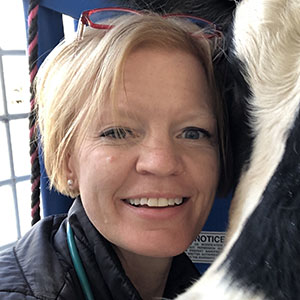
Dr. Jones received her DVM from Oklahoma State University in 2002. She entered private mixed-animal practice in Brandenburg, Kentucky, later completing a residency in Large Animal Internal Medicine-Emphasis Food Animal and received a MS degree in Veterinary Biomedical Sciences at Oklahoma State University. She has taught food animal field services and internal medicine at Kansas State, Texas A&M and Oklahoma State. She owns Large Animal Consulting & Education, teaches part time for Texas Tech, and operates a ranch with her husband and 2 girls.
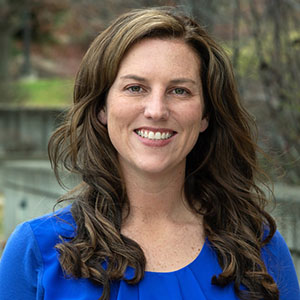
Dr. Melissa Holahan is a veterinarian, farmer, and educator based in Northville, Michigan. She is the chief veterinarian and owner of Caprine & Ewe Veterinary Consulting, as well as the owner/operator of Chubb E Acres, a farm dedicated to breeding and showing Nigerian Dwarf and Alpine dairy goats. Recognizing a gap in mobile veterinary services across Michigan, Dr. Holahan launched her mobile practice in 2022, offering care to small animals, goats, sheep, alpacas, and honeybees, with a specialized focus on small ruminant reproduction.
Dr. Holahan received her Doctor of Veterinary Medicine (DVM) from Michigan State University in 2006, followed by a rotating internship at the University of Pennsylvania and a residency in emergency and critical care at MSU. She became board-certified as a Diplomate of the American College of Veterinary Emergency & Critical Care in 2010. After serving as a clinical instructor and criticalist in Connecticut, she returned to Michigan in 2012 to join the Oakland Veterinary Emergency & Critical Care Department. In 2023, Dr. Holahan joined Washington State University’s College of Veterinary Medicine as a research associate and lecturer, where she contributes to disease prevention and preparedness strategies from her remote position.
Passionate about collaboration, Dr. Holahan regularly consults with fellow veterinarians to ensure the best possible care for their patients, especially in remote areas with limited access to specialized services. She is also deeply committed to educating the next generation of veterinary professionals and producers through internships, externships, and community outreach programs.
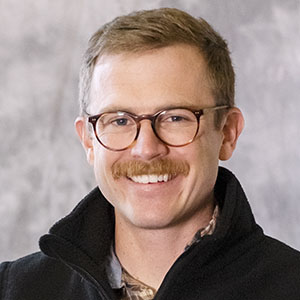
Dr. Charlie Bahnson earned a biology degree from Augustana University, a DVM from Iowa State University, and a PhD from the University of Georgia. He has served as wildlife veterinarian for the North Dakota Game and Fish Department since 2018.
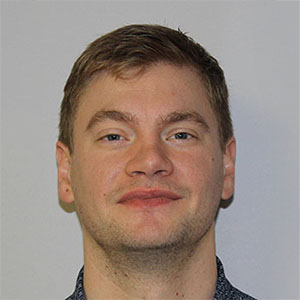
Dr. Shrader is a Nebraska native, originally from a small farm outside Elmwood. After attending Kansas State University for a bachelor’s degree and DVM from the College of Veterinary Medicine, he completed a specialty internship in zoo, exotics, and wildlife medicine at the University of Saskatchewan’s Western College of Veterinary Medicine. From there, he progressed to a specialty internship in zoological medicine and surgery at Omaha’s Henry Doorly Zoo and Aquarium. Following the training program, Trent was offered the opportunity to stay as an associate veterinarian at the Omaha Zoo, where he worked until moving on to the Director of Medicine and Conservation position at the Lincoln Children’s Zoo.
In 2022, Dr. Shrader left the zoo to open a private practice in Omaha, providing urgent and emergency veterinary services to west Omaha. Southpaw Veterinary Clinic and Emergency Care is the only hospital that sees exotic pets in a service area of over 1.5 million people and has grown to 8 doctors and over 60 staff members. Dr. Shrader currently splits his time between his clinic and Kansas State University’s Veterinary Health Center, serving as the Assistant Clinical Professor of Zoo, Exotic, and Wildlife Medicine and Surgery. He is currently attaining additional qualifications in conservation medicine through a master’s degree program at the University of Edinburgh’s Royal School of Veterinary Medicine. Current areas of research interest include improving the safety of exotic animal anesthetic procedures and evaluating the impact of neonicotinoid pesticide exposure on birds.
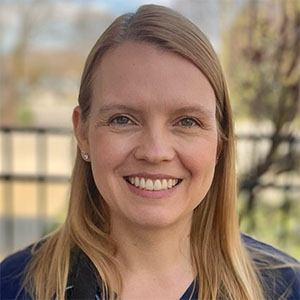
Dr. Karen Gadberry is the Professional Services Veterinarian for Companion Animal Health. She received her Doctor of Veterinary Medicine from the University of Illinois College of Veterinary Medicine in 2002. After graduation she worked in small animal general practice enjoying preventive medicine and enhancing quality of life, and realized there is more to healing and helping animals than mainstream medicine. She later joined the Companion Animal Health team to combine her focus on improving patient comfort and quality of life with business development.
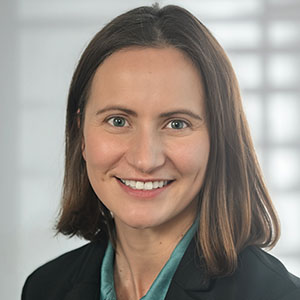
Jessica Burns is a veterinarian with 20 years of experience, holding a Doctor of Veterinary Medicine (DVM) from the University of Illinois and a Biochemistry degree from Baylor University. She previously owned a successful veterinary house call practice for a decade, where she provided compassionate, personalized care to pets and built strong client relationships.
In 2023, Jessica transitioned to the veterinary industry to leverage her animal care expertise and business skills, expanding her impact beyond clinical practice. She enjoys collaborating with fellow veterinarians to enhance animal care and drive business growth within the field. Jessica lives in Colorado with her husband, two teenagers, three cats, and several chickens. In her free time, she enjoys family outings and hiking Colorado’s iconic 14ers.
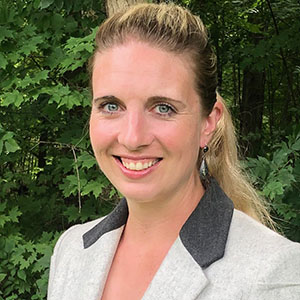
Dr. Sasha Hill grew up in central Ohio, where horses have always been a valued part of her life. She graduated from The Ohio State University College of Veterinary Medicine, after attending Otterbein University for her undergraduate education.
She has been an associate veterinarian at the Cleveland Equine Clinic since 2012. She was mentored by Dr. Ron Genovese and Dr. Brett Berthold focusing on sports medicine and advanced imaging diagnostics, e.g.; orthobiologic therapies, stem cells, standing MRI and CT. Since 2014, she has been a certified user of the Hallmarq standing MRI, and has attended multiple clinical user meetings nationally, and internationally in Chamonix, France. In 2020, Dr. Hill received recognition as the Region 4 PATH Veterinarian of the year. She works alongside farriers and other equine practitioners as an integral part of her daily caseload management. Dr. Hill has been passionately involved with the National Alliance of Equine Practitioners (NAEP) since 2019 and currently serves on the executive committee as the Past-President. She is also a member of AVMA, AAEP, OVMA, ISELP and IEOC.

Dr. Mark Alley is a managing veterinarian with Zoetis. His primary responsibilities are providing support to Zoetis business managers involved with cow/calf and stocker operations in the southeastern United States. Dr Alley is a Mississippi native earning his DVM from Mississippi State University College of Veterinary Medicine in 1996. Dr. Alley was in small animal private practice in WV and mixed large animal practice in TN before joining North Carolina State University where he spent 10 years as an ambulatory clinician and extension ruminant veterinarian for NC.
To continue his education, Dr. Alley completed an MBA from University of Guelph in 2008 and the requirements to become a Diplomate of American College of Animal Welfare in 2022.
Dr. Alley lives in Cary, NC with his wife, Audra, and they own a 6-person small animal practice in Morrisville, NC. Their daughter Taylor still lives at home while their son and daughter-in-law (Reid and Julia) are seniors at Mississippi State University College of Veterinary Medicine.
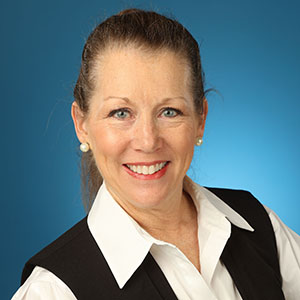
A native of Alabama, Dr. Hulon graduated from Auburn University with both her undergraduate degree and her D.V.M. She has practiced in Texas, Tennessee, Kentucky, and Alabama in a variety of areas during her career, including small animal practice (associate and owner), relief vet, shelter medicine, Department Chair for a Veterinary Technology Program, and as a Technical Service Veterinarian for Hill’s Pet Nutrition.
Since 2011, Dr. Hulon has been a Regional Consulting Veterinarian for Elanco Animal Health. Her current role is the Wellbeing Consulting Veterinarian, where her personal experiences and professional passion focus on subjects related to wellbeing within the veterinary profession. She is focused on delivering information that promotes wellbeing to the veterinary profession nationally and internationally.
Subjects in which Dr. Hulon has certification are FRANK Communication Skills, Insights Discovery, Compassion Fatigue, Positive Psychology, QPR Suicide Training, Fear Free, the Human Animal Bond, Mental Health First Aid and Canine Colors.
Dr. Hulon is very involved in organized veterinary medicine. She is a Past President of the Kentucky VMA and served for 2 years as Secretary/ Treasurer. She was President of the Greater Louisville VMA for 11 years. She was a member of the Alumni Advisory Council for Auburn University’s College of Veterinary Medicine for 8 years and served on the Foundation Board for the Louisville Zoo for 16 years as the Chairperson for the Conservation, Education and Collections Committee.
Currently, she is involved with the Alabama VMA, serving on the Wellbeing Committee and is a member of the Auburn University College of Veterinary Medicine Alumni Group. Dr. Hulon teaches the Wellbeing Elective at Auburn University College of Veterinary Medicine.
Heidi lives in Auburn, AL with her parakeets, Aurea and Bo. She has 2 grown sons, Spencer and Evan, of whom she is extremely proud. When not working, she can be found on the tennis court or attending an Auburn event. J War Eagle!

Dr. Kenneth Pierce is a native New Orleanian. He received his undergraduate degree from Tuskegee University and his Doctorate of Veterinary Medicine from Louisiana State University’s School of Veterinary Medicine in 2005. He completed a small animal medicine and surgery internship at the University of Tennessee’s College of Veterinary Medicine and then traveled to Southern California to complete a specialty ophthalmology internship with Eye Care for Animals and B. Braun, Inc. He then completed a four-year comparative ophthalmology residency with a master’s degree at Michigan State University. Dr. Pierce started as an Associate Professor at LSU’s School of Veterinary Medicine and then transitioned to private practice at Garden State Veterinary Specialists in Tinton Falls, NJ, Veterinary Eye Institute, in Plano, TX, and then started his own business, Veterinary Vision Center, in Shreveport, LA. After experiencing the effect of advisory support on DVM education and patient success, and working in an underserved area with limited access to veterinary specialty care, Dr. Pierce started VESPECON, a veterinary specialist to primary veterinarian advisory support, concierge referral service, and more! As you can see, Dr. Pierce has lived in every region of the United States and has gained valuable experience to educate and empower the veterinary community. In his down time Dr. Pierce enjoys scuba diving, spending time singing and dancing with his young daughter, and traveling with family and friends.
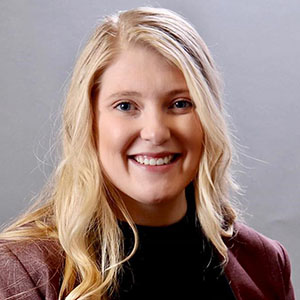
Dr. Rachel Gibbs is the Livestock Extension Specialist at the NDSU Hettinger Research Extension Center. Originally from West-Central Texas, Rachel has an extensive background in sheep production and was actively involved in several areas of animal agriculture through local, regional, and state 4-H programs. Rachel acquired her BS in Animal Science from Texas A&M University, followed by her M.S. and Ph.D. from the University of Nebraska-Lincoln, where her research efforts focused on mitigating the outcomes of stress-induced fetal programming on ruminant livestock. Before joining NDSU in June of 2024, Rachel was a Postdoctoral Research Fellow at the University of Nebraska-Lincoln, researching the impact of acute heat stress on feedlot beef cattle physiology, behavior, and genome. As a Livestock Extension Specialist, Rachel’s research and Extension programs focus on improving the productivity of ruminant livestock through management tool development and stakeholder engagement.
Dr. Yuko Eguchi-Coe has specific focus on Integrative Medicine at our Animal Healing Location, which includes laser therapy, acupunture, medical manipulation, physical rehabilitation, and Chinese Medicine.
Dr. Yuko grew up in the Tokyo, Japan area. She came to Jacksonville, Florida as a high school exchange student and elected to stay in the United States to attend Oregon State University. She assumed ownership of West Hills Animal Hospital in September of 2015 after practicing in the Portland/Salem area.
Dr. Yuko earned her Bachelor of Science, Masters of Science and Doctor of Veterinary Medicine degrees at Oregon State University, as well as a Masters of Science in Traditional Chinese Medicine from Chi University. She has worked and trained with numerous board certified specialists including surgeons, dentists, oncologists and anesthesiologists. She has her certification in Radioisotope 131 therapy to treat hyperthyroidism and set up the treatment unit at VCA Raleigh Hills in Portland. She is also trained in endoscopy and surgical laparoscopy, and is always learning new material from various classes that she travels to around the US. Yuko has been Fear Free Certified since 2017, and a Cat Friendly Certified Vet since 2021.
Her leisure hours are spent tending to the family farm, canning, reading, quilting and crocheting.
Yuko and her husband, Matt, have 2 children – Madeline and Sierra. They also have many furry children ranging in sizes from a 5 lb mini pinscher to a 90 lb Greater Swiss Mountain Dog, a few different breeds of cats, backyard chickens and ducks, and some cows.
Her additional certifications are as follows:
Certified Veterinary Acupuncturist, Certified Veterinary Acupuncture Therapist, Certified Canine Rehabilitation Therapist, Certified Veterinary Medical Manipulation Practitioner, Certified Veterinary Pain Practitioner, Certified Veterinary Balance Method Acupuncturist, Certified Veterinary Chinese Herbalist, Certified Veterinary Tui-na Practitioner, Palliative and End-of-life Practitioner and is a MS-TCVM (Master of Science in Traditional Chinese Veterinary Medicine).
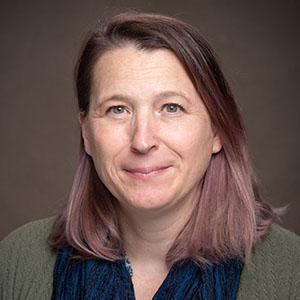
Dr. Pecoraro is NDSU’s VDL Director and Anatomic Veterinary Pathologist.
For over two decades she has been part of clinical and research teams in human and veterinary medicine. Dr. Pecoraro was trained as a veterinary scientist at Colorado State University and received both a PhD in pathology (2012) with a focus on molecular virology of influenza viruses and a DVM (2014) tracking mixed animal medicine. Prior to her current position as director and diagnostic pathologist at the North Dakota State University Veterinary Diagnostic Laboratory (NDSU VDL), she completed two years of residency at Cornell College of Veterinary Medicine (2014-2016) and another two years of fellowship at Oregon National Primate Research Center (2016-2018). Since 2018, she has been board certified in anatomic veterinary pathology through the American College of Veterinary Pathologists. Her expertise is in infectious and zoonotic diseases of animals.